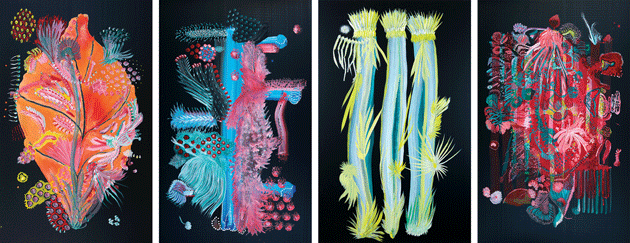Conspiratorial thinking about the neoliberal status quo was tied to paranormal and authoritarian beliefs, but the lay economic theory of Conspiracy is generally less prevalent than that of the Bad Invisible Hand. The Sicilian mafia may have arisen because of a citrus boom in the 1800s. Regions of Italy that were exposed to Silvio Berlusconi’s entertainment-TV broadcasting remained likelier to vote for populist politicians for two decades; the study’s authors concluded that Berlusconi’s programming exposed older voters to biased evening news and made younger voters grow up to be stupider and less politically engaged. Swedish scientists studying the benefits of robot-assisted news production worried that it might make human journalists lazy. Business researchers posited that busyness has replaced leisure as a marker of prestige for Americans, constituting “an alternative kind of conspicuous consumption that operates by shifting the focus from the preciousness and scarcity of goods to the preciousness and scarcity of individuals.” Among Germans, 51.4 percent would pay €50 to test a possibly fake €2,000 blue sapphire purchased while on holiday in Sri Lanka, 6.8 percent would like to know what they are getting for Christmas, and 90.4 percent would not like to know the cause of a romantic partner’s eventual death.
Forensic scientists described the case of a woman who appeared to be the victim of sexual homicide but was instead found to have taken off all her clothes and run around in a forest until she was bitten by insects and died. In the Amazon, a prominent shaman died of snakebite, and two other shamans located a lost tourist by communicating with his soul through a recovered sock, though the man later claimed he was also assisted by generous monkeys. The high court of Uttarakhand granted the Ganges and Yamuna Rivers full human rights and appointed three sentient guardians on their behalf. A sea turtle named Piggy Bank died following surgery that recovered 915 coins from her stomach. Abyssal currents of Antarctic bottom water along the Orkney Passage were being monitored by Boaty McBoatface. There are more than twice as many Adélie penguins in East Antarctica as previously thought, and Galápagos penguins who had grown up and left the nest were seen returning to be fed by their parents. The kea became the first nonmammalian to demonstrate infectious laughter. The world’s largest canary was discovered on São Tomé. The Kentucky Coal Museum switched its electrical supply to solar power.
Scientists created a menstrual cycle and anorexia nervosa in dishes and, on a transparent spinach leaf, grew the beating cells of a human heart. An analytic psychologist diagnosed Pinocchio with autism, and comparative psychologists modeled autism in poodles. The lives of French men and women who were fetuses when their fathers died in WWI were 2.4 years shorter on average. A dead Nazi fighter pilot was found in possession of food stamps and three unused condoms. Britain’s link to Europe was severed 450,000 years ago and its textile heritage was being destroyed by moths. The carbon footprint of violent and acquisitive crime in England and Wales more than halved between 1995 and 2015, significantly outpacing the overall drop in crime. The tomb of Christ is near collapse. Reality may not exist as a three-second subjective present. Toronto researchers concluded that the best location for an automated external defibrillator is a Tim Hortons.

Rave, Most, Maize, and Herein, acrylic and latex paintings on corrugated plastic by Thomas Kovachevich, whose work was on view in March at NADA New York. Courtesy the artist and Callicoon Fine Arts, New York City.




































































































